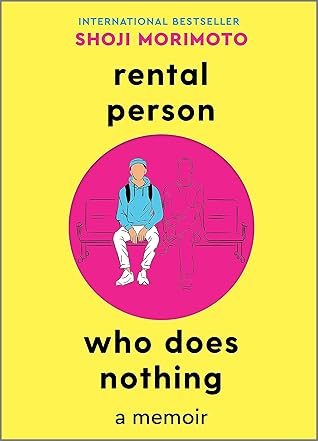More on this book
Community
Kindle Notes & Highlights
But Kokoroya argued that people should be paid for just being there—that people have a value even if they do nothing.
I felt comfortable in a community that existed just for the moment, with simple, temporary relationships uncomplicated by past or future.
I’ve learned that there are a lot of important things that can be talked about with people you don’t know very well or even at all.
Depth of discussion and depth of relationship don’t always go hand in hand. The fact that you’re very close to someone doesn’t mean you can necessarily open up to them. In truth, closeness quite often makes people keep their mouths shut.
Another reason why people ask me to listen to them seems to be that I don’t give advice.
Having someone with you can have a similar effect. You (hydrogen peroxide) may take ten units of energy to do something on your own, but with someone else there (manganese dioxide) you may be able to achieve the same result with just four or five units of energy.
Do-nothing Rental seems to have functioned as a kind of catalyst simply through messages on Twitter—an extreme example of doing nothing.
My impression is that people who talk about dreams in such a public way take a very moralizing stance: that a “dream” should be for the benefit of others—for the benefit of the world.
Perhaps it’s unkind of me, but when I listen to people sounding off about their grand dreams, I tend to be suspicious that they’re looking for praise.
My dream of doing nothing is already a reality, so in fact, it is a dream of keeping things as they are. Why shouldn’t a dream focus on the here and now? Why is there an assumption that it must be about the future?
While not having much individuality fits with “doing nothing,” there’s a danger that a complete lack of individuality could end up as a strong identity in itself.
think that when I was looking for a job, I felt exactly as I do today—that I don’t want my identity to be defined by a set of abilities.
If people are pressured by society into saying they have particular abilities, then the true value they have as themselves becomes blurred. If you say you have value because you can do particular things, you will always be judged by established social standards. So I never say I can do anything. And I don’t do anything.
How many people in the world contribute to society through a job they’d predicted would be perfect for their personality?
“When you talk about yourself, say what you like, not what you don’t!!!”
I can’t stand people who say things like that. What’s wrong with talking about what you don’t like? People who speak about themselves in terms of what they like are often very vague and dull. They sound as if they’re just trying to make a good impression. People who talk clearly about what they dislike tend to be more interesting, focusing more on specifics. They’re probably more honest. Maybe more sincere.
Maybe that’s what Rental Person is like—someone whose appearance varies according to the viewer’s angle or wavelength.
Nobody can live without money. Unless they’re very rich, they have to keep working to earn a living.
To reach the stage where you can just be yourself with the other person takes a lot of time and energy.
Social media has made the range of people’s potential relationships much wider. Human relations used to be one-to-one and any personal exchange could be handled privately. But with social media, this can all quickly become common knowledge.


